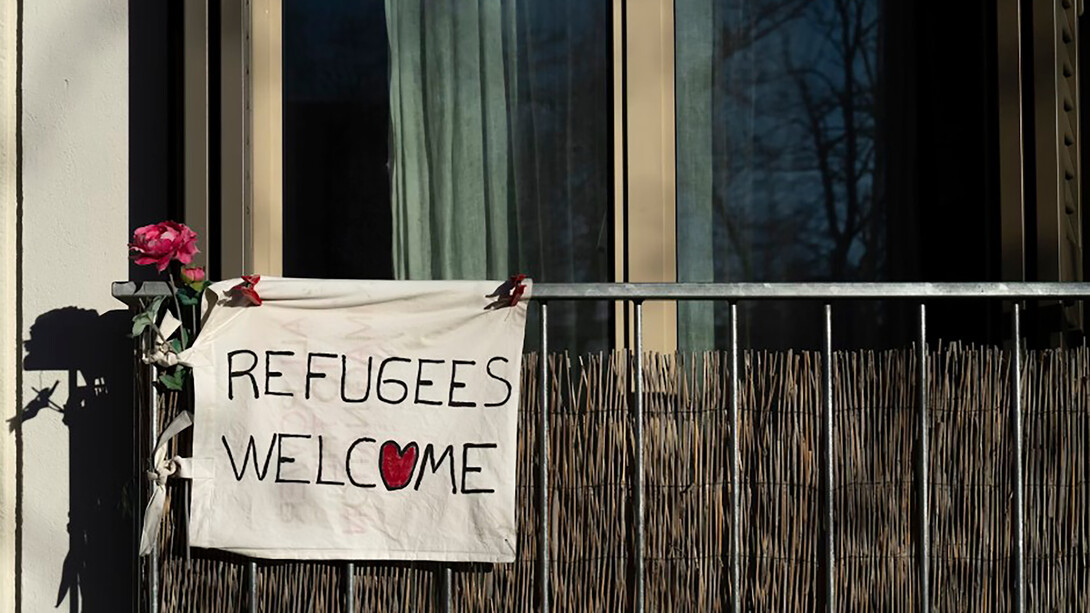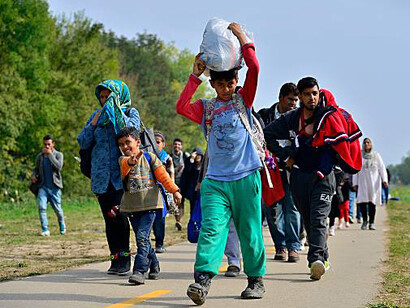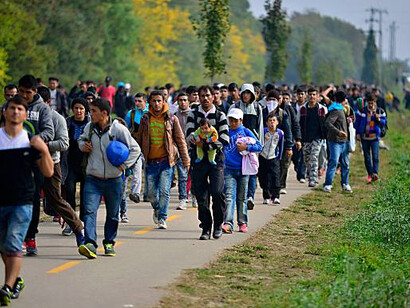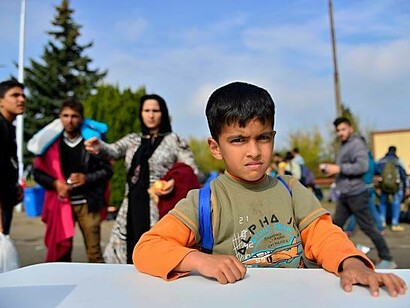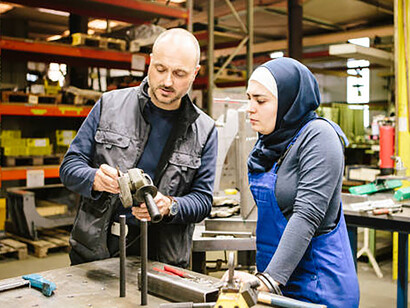Although some believe the far-right is gaining an ever stronger foothold in European politics as a result of the Russian-Ukrainian crisis but also the continent's overall troubled economic situation, it seems like Germany remains an exception to this, considering its relatively liberal stances on issues that have always been far-right go-to issues.
While there are always plenty of topics open for heated debates amongst German politicians, especially in electoral seasons, issues like immigration, asylum seeking, and refugees usually constitute a hotspot that attracts attention and brings about much stress in the public sphere at the elites' level but also at the very grassroots level amongst local citizens and individuals.
Although there might be some level of scepticism amongst some sectors of society towards immigration, either because of fears of competition over economic opportunity, cultural disintegration, or security and stability concerns, it is common wisdom that immigration has always been a catalyst for socioeconomic development and cultural diversity in both the original and destination countries.
However, the problem always lies in how to come up with flexible legal mechanisms and policy frameworks capable of organizing the movement of human groups in a way that brings good to all parties. In this regard, Germany seems to have taken some concrete steps that are worth examining and learning from.
A massive shift in policy that will make it easier for immigrants to stay in the country, a new immigration law in Germany provides unprecedented facilities for asylum seekers and immigrants who are already living in Germany, as well as those who are still waiting for their application, enabling them to apply for a temporary residency permit as soon as they have been waiting for 3 months.
Effective since October 2022, the new law allows those who have lived in Germany for at least five years to receive 18 months of “occasional rights” in order to meet the conditions of a residence permit, provided they have not committed any crime, providing even easier access to the labor market.
Ever since he came to power as part of a coalition made up of the center-left Social Democrats (SPD), the Greens, and the neoliberal Free Democrats (FDP), Chancellor Scholz has pledged to modernize the country's immigration regulatory framework in a bid to lower bureaucratic barriers and extend citizenship rights to newcomers.
Modifying Germany's immigration policies and rules is seen to boost immigrants' socioeconomic integration in German society. Moreover, immigrants will be allowed to have dual citizenship and will be able to become naturalized Germans in five years instead of eight.
Through introducing a points-based system, the new legislation aims to bring new talent to Germany, especially in the areas of healthcare and IT, fields in which Germany has been suffering from a remarkable deficit. To that end, a second draft law known as the Skilled Immigration Act is planned to contribute to alleviating the country's severe need for workers.
According to official statistics, Germany will have to hire some 400,000 people every year from abroad in addition to the domestic workforce to make up for the aging population and address the lack of skilled workers it experiences, particularly in fields of hospitality and engineering.
Although said amendments didn't pass without criticism, they still represent a progressive attitude, one that was launched under Merkel's government when the country took the lead in absorbing the largest number of Syrian refugees in Europe starting in 2015. The current approach, therefore, builds upon what has already been achieved before and paves the way towards more social cohesion.
Despite anti-immigration narratives including alleged security risks and concerns about threats to the existing culture and way of life, Germany's government seems to be setting a bright example for the continent in how possible it is to pursue a liberal open-door policy on immigration that pragmatically achieves the country's strategic economic interests but also maintains an adequate degree of humanitarian tolerance towards the needy and most vulnerable.
While these new immigration policies are a significant step forward, there are still challenges ahead for Germany. The integration of immigrants into the social fabric requires more than just policy changes—it necessitates strong support systems, including language education, cultural exchange, and targeted employment opportunities. Moreover, public opinion remains divided, with some citizens expressing concern about the long-term impact of immigration on Germany’s social cohesion. Nevertheless, the country's progressive approach to immigration reform demonstrates that, with careful planning and commitment, migration can be harnessed as a force for economic growth and cultural enrichment. Germany's example could offer valuable lessons for other European nations grappling with similar issues, ultimately shaping a better future for the continent.
This article was written by Mahmoud Elmakkawe. Mahmoud is an Italy-based policy analyst and communications strategist. Hailing from Egypt, he has a BA in mass communications from Cairo University and a master's degree in public policy from the American University in Cairo (AUC). Mahmoud works as a freelance writer and independent policy researcher.
References
DW (2022). Germany and immigration: Plans for reform.
Die Welt (2021). “We need 400,000 immigrants per year,” says employment agency boss Scheele.
